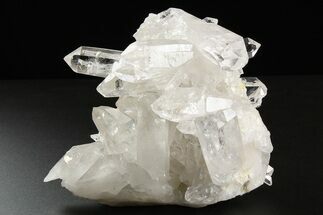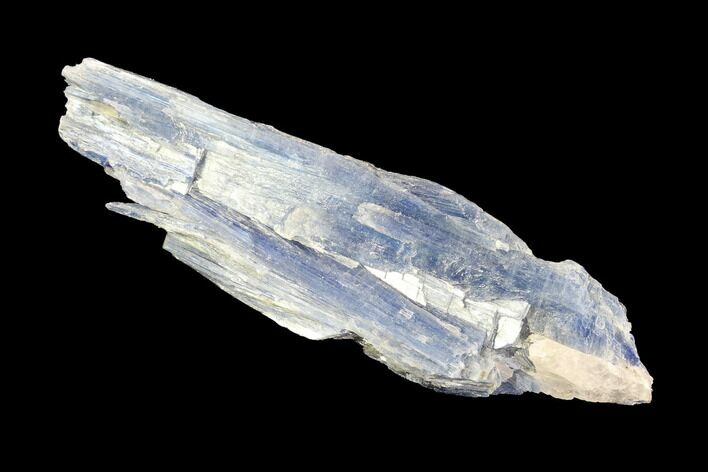This Specimen has been sold.
5.1" Vibrant Blue Kyanite Crystal Cluster - Brazil
This is a vibrant blue kyanite crystal cluster that's associated with a small amount of quartz, collected from Minas Gerais, Brazil
About Kyanite
Kyanite is a silicate mineral with the chemical formula Al2SiO5. It is known to be one of the most attractive natural minerals in the world, frequently found with lustrous blue bladed crystals. The intensity of color varies by location of extraction. Kyanite regularly forms fibrous, radiating crystals, but can be flattened and tabular. Some crystals form with white striations, color bands, and even multi-colored crystals, though many are typically found with a deep blue streak running down the middle.
Kyanite is a silicate mineral with the chemical formula Al2SiO5. It is known to be one of the most attractive natural minerals in the world, frequently found with lustrous blue bladed crystals. The intensity of color varies by location of extraction. Kyanite regularly forms fibrous, radiating crystals, but can be flattened and tabular. Some crystals form with white striations, color bands, and even multi-colored crystals, though many are typically found with a deep blue streak running down the middle.
About Quartz
Quartz is the name given to silicon dioxide (SiO2) and is the second most abundant mineral in the Earth's crust. Quartz crystals generally grow in silica-rich environments--usually igneous rocks or hydrothermal environments like geothermal waters--at temperatures between 100°C and 450°C, and usually under very high pressure. In either case, crystals will precipitate as temperatures cool, just as ice gradually forms when water freezes. Quartz veins are formed when open fissures are filled with hot water during the closing stages of mountain formation: these veins can be hundreds of millions of years old.
Quartz is the name given to silicon dioxide (SiO2) and is the second most abundant mineral in the Earth's crust. Quartz crystals generally grow in silica-rich environments--usually igneous rocks or hydrothermal environments like geothermal waters--at temperatures between 100°C and 450°C, and usually under very high pressure. In either case, crystals will precipitate as temperatures cool, just as ice gradually forms when water freezes. Quartz veins are formed when open fissures are filled with hot water during the closing stages of mountain formation: these veins can be hundreds of millions of years old.
 Reviews
Reviews













